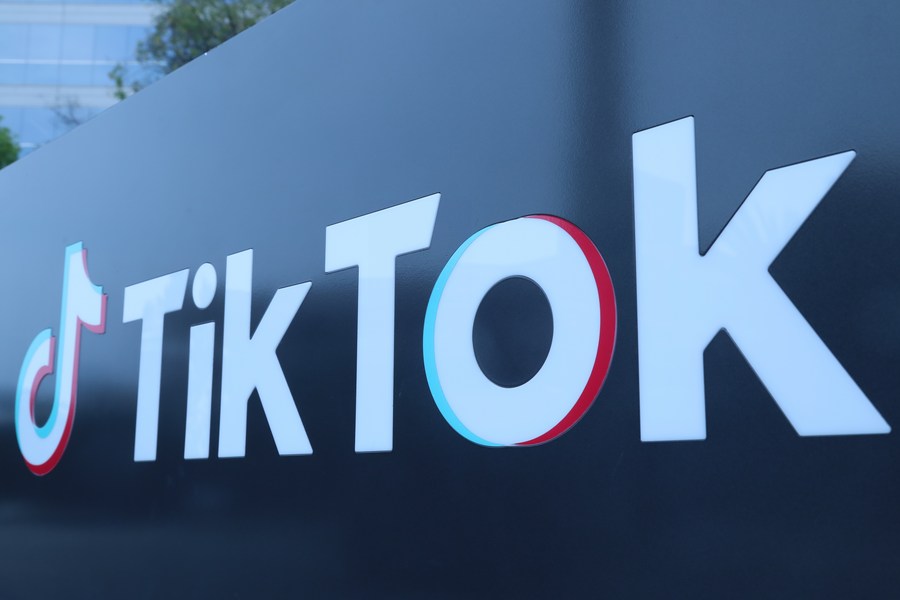
By Adeyemi Adekunle
As the weekend looms, millions of TikTok users in the United States face a cloud of uncertainty. The looming threat of the app being banned has left influencers, small business owners, and even casual users grappling with the prospect of losing what, for many, is more than just a platform for entertainment—it’s a livelihood, a creative outlet, and a community.
Amid whispers of a possible shutdown set for Sunday, ByteDance, the Chinese parent company of TikTok, has been unable to secure a last-minute reprieve to avoid closure in the U.S. According to sources, efforts to meet the U.S. government’s demands, including divesting American operations, have hit a legal wall. Without intervention from the Supreme Court, the Biden administration appears unlikely to step in, leaving TikTok’s fate in the balance.
For individuals like Amanda Sanchez, a 23-year-old makeup artist based in Los Angeles, the news is devastating. “I built my business on TikTok,” she says. “My tutorials and product reviews aren’t just my passion—they’re how I pay my bills.” Sanchez, like millions of other creators, depends on the app’s algorithm to reach audiences and drive traffic to her website. A shutdown would not only sever her connection with her 500,000 followers but also threaten her income.
Across the country, anxiety is palpable. Teenagers lament the potential loss of their go-to app, while small business owners frantically search for alternative platforms to market their products. TikTok’s seamless blend of entertainment and commerce has been its unique value proposition, and its absence will leave a void that competitors like Instagram Reels and YouTube Shorts may struggle to fill. Yet, one competitor, the Chinese app RedNote, has already seen a spike in downloads, gaining millions of U.S. users within a day. This rapid shift underscores just how integral TikTok has become to the digital ecosystem.
The crisis extends beyond the app’s users. More than 7,000 TikTok employees in the U.S. face the potential loss of their jobs. For software engineer Jacob Miller, who joined TikTok after leaving a Silicon Valley giant, the situation feels surreal. “It’s hard to explain how much this company means to me.
We’ve worked tirelessly to ensure the safety of our U.S. data and the integrity of the app,” he explains. Miller believes ByteDance has been transparent and cooperative with U.S. authorities, making the threat of a ban feel unjust.
At the core of the controversy is a complex web of geopolitics and concerns over data security. Critics allege that TikTok’s ties to the Chinese government present national security risks, an assertion the company has repeatedly denied.
ByteDance has taken measures, such as storing U.S. user data domestically and proposing to divest its American operations, to assuage these concerns. However, for some policymakers, these steps are not enough.
While national security remains a legitimate issue, many see the ban as emblematic of broader tensions between the U.S. and China. For 19-year-old Zoe Matthews, who uses TikTok to advocate for mental health awareness, the situation is deeply frustrating. “It feels like we’re being punished for something we have no control over,” she says. “This isn’t about us—it’s about politics.”
Others are questioning what the potential ban says about freedom of expression and innovation. TikTok’s appeal lies in its rawness, a stark contrast to the polished curation of other platforms. It has democratized creativity, enabling voices from underrepresented communities to reach global audiences. Advocacy campaigns, grassroots movements, and niche subcultures have thrived on TikTok. For many, its loss would mean the erasure of spaces that have fostered connection and understanding in an increasingly divided world.
The economic ripple effects of a TikTok shutdown would also be significant. The platform has become a lifeline for countless small businesses, especially during the COVID-19 pandemic, as entrepreneurs leveraged viral trends to stay afloat. Industries ranging from beauty and fashion to food and travel have relied on TikTok to drive sales and visibility. The hashtag #TikTokMadeMeBuyIt, which showcases viral products, has alone generated billions of views, translating to tangible benefits for brands both large and small.
The news has prompted some to call for greater transparency and fairness in the government’s handling of the situation. “This sets a dangerous precedent,” argues David Thornton, a tech policy analyst. “What’s to stop the government from targeting other apps or companies it views as problematic? It sends a chilling message to innovators and foreign investors.”
As Sunday approaches, TikTok users are holding onto hope that a resolution can be found. Online, a sense of solidarity is growing. Creators are urging their followers to join them on other platforms, while some have taken to sharing videos expressing their gratitude for the memories TikTok has given them. For many, the potential shutdown feels like saying goodbye to a cherished friend.
In Washington, the debate continues, with lawmakers divided over the best course of action. While some argue that a ban is necessary to protect national security, others believe the move risks alienating millions of users and creating an environment of distrust in American institutions.
ByteDance, meanwhile, maintains that it remains committed to finding a solution. Whether through divestment, negotiation, or litigation, the company’s future—and that of TikTok’s millions of users—hangs in the balance. As President Biden focuses on the transition to a new administration, many are left wondering whether the cost of TikTok’s absence outweighs the purported benefits of its removal.
For Sanchez, Matthews, Miller, and countless others, the question lingers: what happens next? The answer may define not only the fate of a platform but also the broader relationship between technology, politics, and society in the years to come.
As the clock ticks down, TikTok’s community remains resilient, determined to hold onto the connections and opportunities the app has provided. Whether that resilience will be enough to withstand the challenges ahead remains to be seen.




